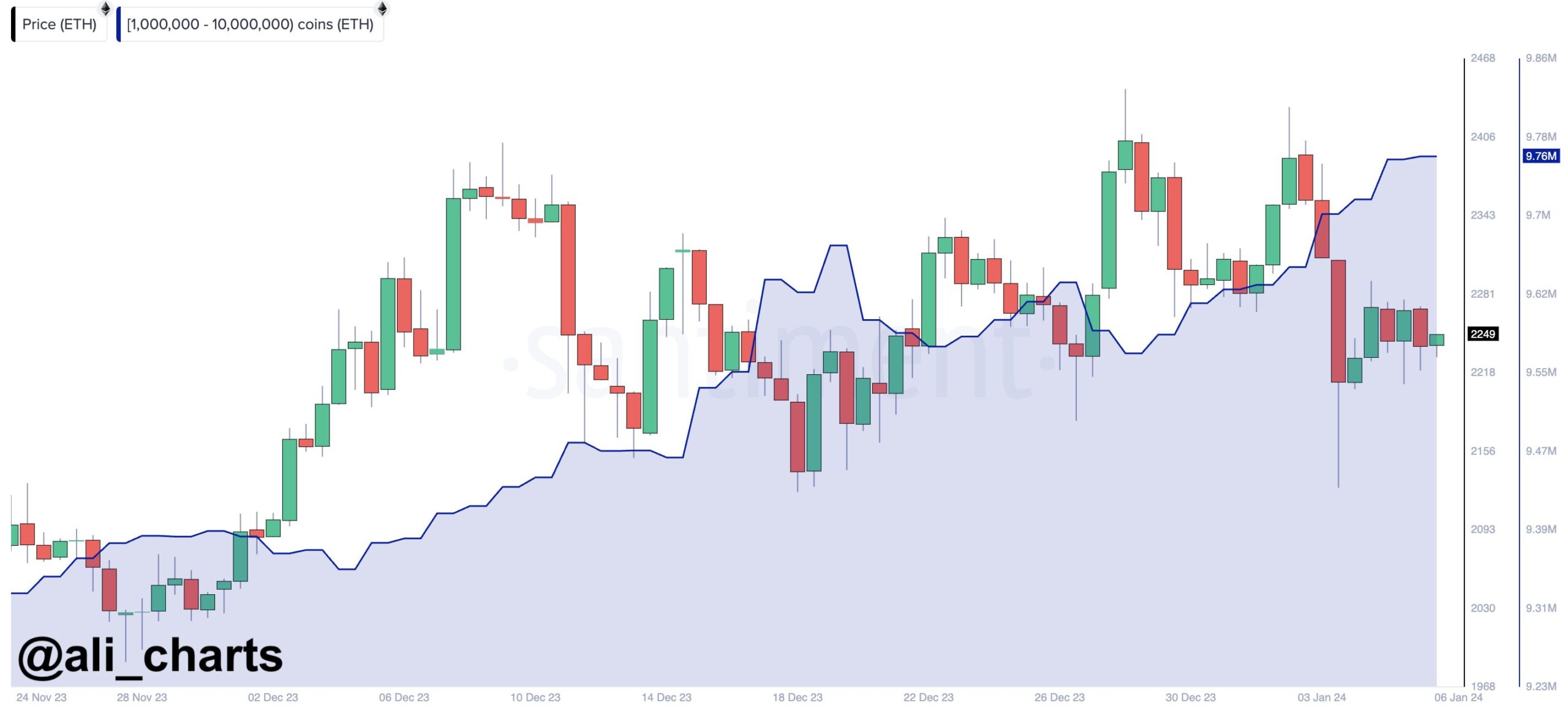Whales have been closely monitoring Ethereum‘s recent market movements due to their significant purchases of Ethereum (ETH) over the past month. With more than 410,000 ETH accumulated, valued at approximately 1 billion dollars, this development has led to speculation and interest within the cryptocurrency community.
Ethereum Accumulation Continues
Ethereum whales, individuals or organizations holding large amounts of cryptocurrency, were active in accumulating more ETH last month. Data shows that these whales collectively acquired more than 410,000 ETH, which currently corresponds to a market value of about 1 billion dollars. Ethereum, the second-largest cryptocurrency by market value, experienced increased demand and rising prices as a result of these whale purchases.
While some view this as a positive sign of confidence in Ethereum’s future, it also raises questions and concerns about potential market manipulation. The recent purchases of Ethereum by whales have sparked a debate within the cryptocurrency community about the reasons behind these acquisitions. Some claim that whales are accumulating ETH as a long-term investment, anticipating future price increases.

Turbulent Times for ETH
Others think that these large purchases could be part of a broader strategy aimed at influencing the market. Ethereum’s decentralized nature has always been one of its defining characteristics. However, the concentration of a significant portion of ETH in the hands of a few whales brings up questions about their potential market impact.
Ethereum’s price has experienced volatility in response to significant whale activity. Although the general trend has been upward, there have been periods of increased market volatility. This dynamic could highlight the potential impact of large-scale transactions by whales on Ethereum’s price trajectory. As the cryptocurrency ecosystem develops and matures, addressing concerns about market manipulation, transparency, and investor protection becomes crucial. The ongoing debate may underline the need for a robust regulatory framework to ensure the long-term sustainability and integrity of the cryptocurrency market.

 Türkçe
Türkçe Español
Español









